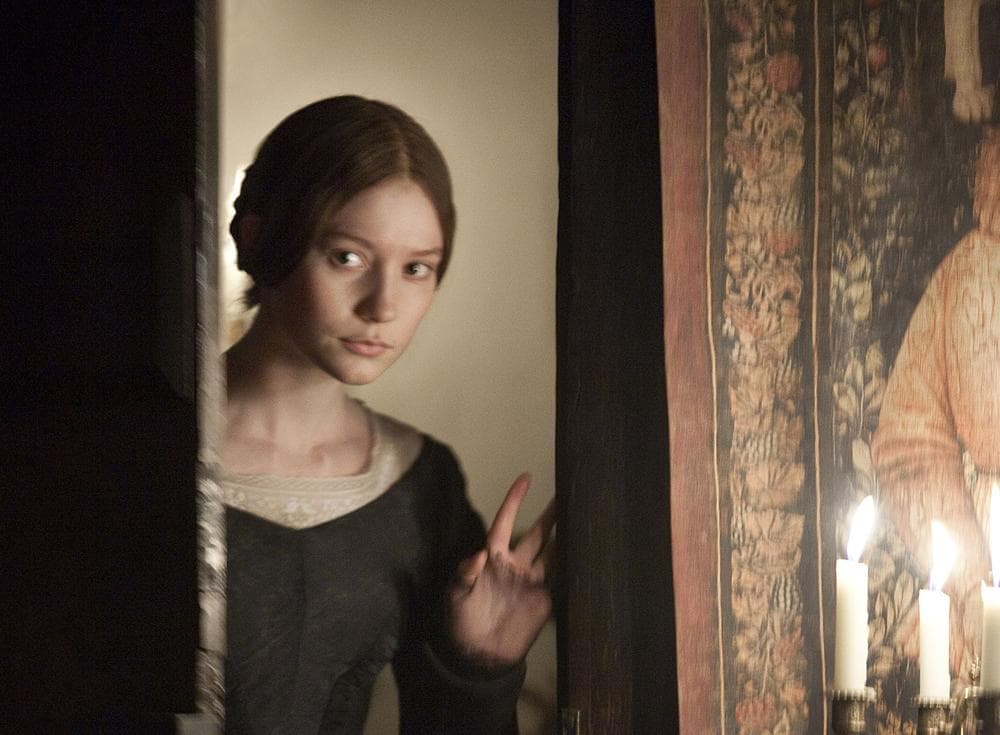Advertisement
From Jane Eyre To Harry Potter: Why Readers Love Orphans
On October 16, 1847 Charlotte Bronte, the oldest surviving daughter of the Reverend Patrick Bronte, published “Jane Eyre.” She was 31-years-old. The novel received many reviews, most praising, some scolding, and the first printing sold out within three months. It has remained in print for the last 165 years and if you still have a local bookshop, you can almost certainly buy a copy there.
My beloved mentor Roger read “Jane Eyre” in India, during the Second World War. He was the navigator of a small plane and missed a landing strip, not fatally, because he had to find out if Jane and Rochester would get married.
I read the novel when I was 9-years-old, just a little younger than Jane is in the opening chapter, and have since re-read it a number of times to teach, and for pleasure. For the last five years I’ve refrained from opening the book only because I’d been working on my own 20th century re-imagining of Jane’s journey. “The Flight of Gemma Hardy” was published this spring so I'm now free to return to Jane once more.
The orphan’s journey is an intensified, deepened version of everyone’s journey.
At the time of my first reading I didn’t notice that Jane has something in common with the heroines and heroes of many other of the other books of my childhood. Like Anne of Green Gables, like Pippi Longstocking, like the narrator of “Daddy Long Legs,” like David Copperfield and Oliver Twist and Pip and Nell and Heathcliff, she is an orphan. And of course the fairy tales I read were thronged with orphans. So too were the stories in the weekly comic I subscribed to: “Bunty” and “Princess.” Clearly the savvy editors of these magazines knew that orphans had commercial appeal. And still do, witness the huge success of J.K. Rowling’s work.
Why do readers, those who are bereaved and those with happy families alike, love orphans?
In his 1909 essay “Family Romances,” Sigmund Freud argues that a child moves from idolizing his parents and wanting to be like them, to inevitable disillusionment. As he meets other parents, he becomes less and less satisfied with his own. His parents slight him and sometimes he has to share them with siblings. “His sense that his own affection is not being fully reciprocated then finds vent,” Freud writes, “in the idea … of being a step-child or an adopted child.” He goes on to say that as the child approaches puberty he uses his imagination and the details of his world to create better and better parents for himself.

Freud’s argument is another testimonial to the widespread appeal of orphans. My own explanation is that the orphan’s journey is an intensified, deepened version of everyone’s journey. Even those fortunate enough to have secure, stable families ultimately need to make their own way in the world.
“I am no bird,” Jane tells Rochester, “and no net ensnares me. I am a free human being with an independent will.”
Charlotte Bronte began writing Jane’s journey while nursing her father through cataract surgery. (One can’t bear to imagine what that must have been like in 1846.) Her first novel, “The Professor,” about a young male teacher who falls in love with a pupil, had been roundly rejected. So Bronte re-framed the May-September romance — telling the story instead from a female perspective. She assigned Jane many of the same attributes she saw in herself — honesty, passion, plainness — but she also made her heroine an orphan, someone who has to make her own decisions about work and marriage in a way that Charlotte, a respectable minister's daughter, was never free to do.
Advertisement
On my first reading of the novel, I was, like most readers, fixated on Jane’s unlikely romance with Rochester, but as an adult I’ve come to understand that she had to come into her own before she could say, “Reader, I married him.” And that surely, forgive me Freud, is what is so persuasive about the orphan as a storytelling device. It is the journey through the unknown country of the self, with all its dragons and demons, towards the more fully known self.
Related:
This program aired on October 15, 2012. The audio for this program is not available.